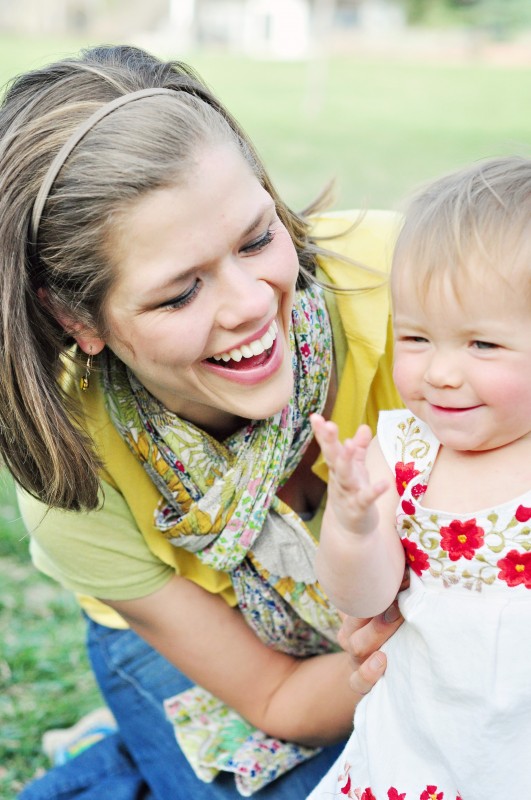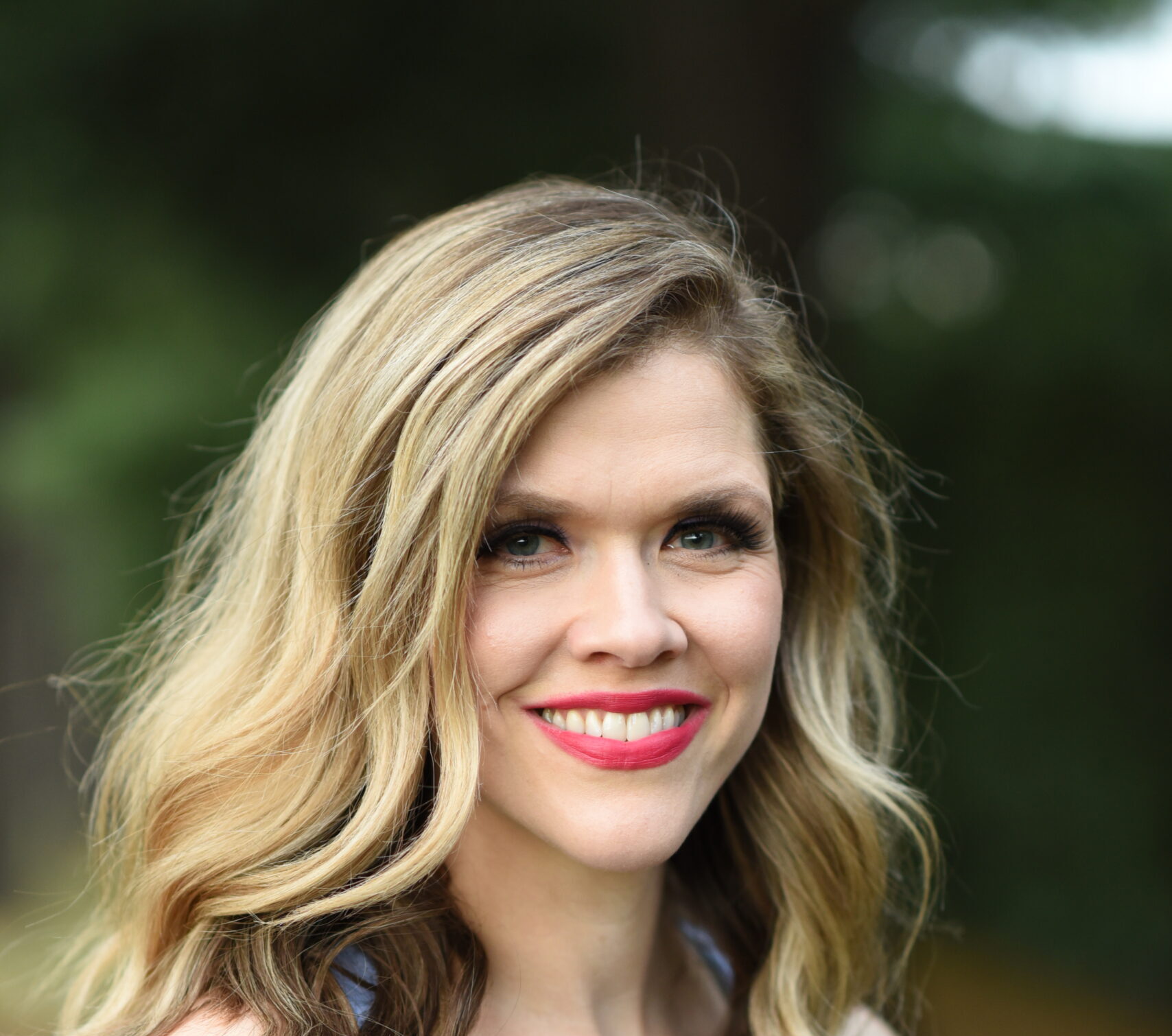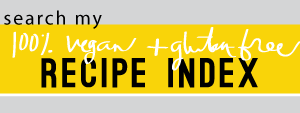 Photo by Red Bean Photography
Photo by Red Bean Photography
New to the blog? Here are some posts to get you started.
Do you make money blogging?
Yes. I earn revenue in a variety of ways–affiliates, advertising, & via the sale of my ebooks.
The way affiliates work: if a reader clicks through a link (either located in a post or in the side bar) to a third party website & makes a purchase, I earn a commission from the items purchased.
For ads, I earn revenue from being a part of the BlogHer publishing network.
I also make money from the sale of my ebooks.
See my disclosure page for more info.
♥ If you’re interested in starting your own blog, are new to blogging &/or want to learn more about making money from your blog, go here.
♥ If you are a company or business interested in working with bring joy, please send me an email. Note that I will only work with companies that I can 100% endorse.
Is this just a vegan food blog?
No. I began blogging in 2009 as a way to share what I had learned about healthy eating & incorporating a vegan diet successfully. My original blog, Whole Foods Vegan Momma, was primarily about food, health, & plant-based recipes.
My initial goal was to just provide information, because I had many friends or family members ask questions & wanted me to help them. I found it was time consuming to help friends on a one-on-one basis & figured an online forum via a blog would be the best way for me to help more people.
In February 2012, I decided it was time to expand the focus & themes of my blog to include fitness & share more of my family life. I love the choice I made to go vegan, but it’s only a small part of my life & I realized I don’t want to talk about food & health all day long. Good food helps me live the kind of life I want to live. However, I don’t live to eat. For that reason I have expanded my focus to share with my readers other things besides food that I feel are important.
Life is short & I want to live it doing the things that matter most. The most important thing in my life is my family. For me, diet & exercise play an important role because they help me have the vitality I need to live with energy & passion & do the things I want to do with the people I love.
I call myself vegetarian, because I don’t eat any meat, but vegan is probably more accurate because I try to avoid eating or using all animal products. (Why I went vegan, here.)
Here are some of my vegan-centered posts:
you drink milk & eat eggs, right?
vegan pantry basics
eating out as a vegan
breastfeeding, cow’s milk, & lies
a rebuttal–talking to the naysayers, again
joys of vegan mothering
what a vegan pantry/kitchen looks like
vegan & mormon, an anomaly?
talking to the anti-vegetarian
what I eat in a typical day
4 stages to transitioning to a whole foods plant-based diet
my last piece of bacon
how I did it
what types of vegans are there?
on living with an omnivore
why I don’t drink cow’s milk
frugal vegan, part 1 & part 2
Are you vegan or vegetarian? What’s the difference anyway?
In a nutshell, vegetarians don’t eat meat but may eat dairy products such as cheese, butter, eggs, & milk. Vegans avoid all animal products including using animal products such as leather, wool & honey.
I’m not 100% vegan, 100% of the time. For example, if there happens to be honey or an egg white in something, I’ll still eat it, but I go out my way to cook & prepare my foods without these things. I don’t feel comfortable buying leather anymore though, & as I said, do my best to avoid eating or using animal products. I try to buy cruelty free make-up & products. My objective in doing so is to avoid causing any unnecessary suffering. I want to live in a compassionate, present & caring way.
I’ve struggled with an eating disorder &/or body image issues. Do you have any advice?
Once you start taking care & tuning into your body, nourishing it with nutritious, filling, whole foods, a lot of the food obsession can be eliminated. That said, eating whole foods isn’t a cure-all. If you are dealing with a real disorder, simply changing your diet won’t be the entire solution to a complex issue.
If you are going vegan or plant-based for health reasons, it’s important to not let it become your life. Orthorexia, a non-medically recognized term, describes a person who has taken healthy eating to an extreme. It becomes a time-consuming obsession. Healthy eating should be about feeling good, not about feeling better than others because your choices are more virtuous than theirs. Healthy eating is not about starving yourself, becoming rail-thin, or denying yourself of the foods you love. It’s about listening to your body, giving it what it needs, while also allowing for times where you can celebrate or indulge a little with cake, ice cream, or other rich foods, without feeling guilty.
I think all women, at least at some point in their lives (after childbirth, say?) go through periods where they deal with body image issues. It is true our society seems to only value the young, thin, & beautiful.
The truth is we are all beautiful. This beauty has nothing to do with our jean’s size or shape of our nose. It has everything to do with our inherent kindness, willingness to give & love others. There are so many things that make a woman beautiful & feminine that have absolutely nothing to do with our exterior. Not that it’s not important to practice good hygenine, take care of yourself & care about grooming or what you wear, because it is, but these things don’t define us or give us value. And curves, are an important part of being feminine, so love them!
If you have an eating disorder, I recommend you seek professional help. An eating disorder is not about food, it’s about control. The only way to truly overcome an eating disorder is through love & guided professional help. Self-love & respect as well as allowing others to love & help you is the path back to a place of peace & acceptance.
You might want to read these posts: how to stop emotional eating & is it possible to lose weight without resorting back to disordered eating?
What are the best exercises for weight loss?
Increasing exercise, without restricting calories (ie. a “diet”), is a poor way to lose weight. This is partly because it’s easy to eat back any calories you may have burned during exercise.
If you pay attention to your diet, then exercise can help you lose weight. The type of exercises you do if you are wanting to shed pounds shouldn’t be too different from exercise you’d do when you want to simply maintain. Everyone, including those on a weight loss program should do a mix of cardiovascular training (running, walking, biking, swimming, kickboxing) & strength training, with some stretching &/or mind/body work (like yoga or Pilates).
For weight loss, I recommend doing 45-60 minutes of a variety of cardio exercise 5-6 days a week in addition to 20-40 minutes, 3-4 days a week of weight training. High intensity interval training (HIIT) has been shown to burn more fat & be more effective in helping individuals trim down, than traditional cardio. Don’t underestimate the power of looking for ways to be active all day long, a lot of calories are burned house cleaning, mowing the lawn, playing with your kids at the park, going dancing with your significant other. Try to move as much as you can throughout the day & you must, must, must pay attention to what you are eating & calories consumed.
Because, when all is said & done, you can do all the exercise you like, but if you don’t consume less than you burn, you will not lose weight.
How do you balance motherhood/work/life?
Life for women comes in waves & in seasons, especially for me. I do what I need to do so I can support my family & ultimately, be with them. I have worked part-time out of necessity, for almost 6 years. Even through all the pregnancies & having babies & toddlers.
Motherhood has taught me a lot! I’ve learned it’s all about keeping priorities straight. Did I begin & end my day with gratitude? Did I show Joseph that I love, respect & appreciate him? Did I hug, play, kiss, & talk with my kids as much as I possibly could?
I try to cut out all non-essentials in my life & find ways to meet both my needs & my kids needs at the same time. For example, this spring (2012), I walk my kids to school. I take the other kids in the stroller & they read books. We all get fresh air, I get exercise, & we’re spending time together while doing something necessary. It’s a win-win for everyone.
Are you religious? Are you Christian?
Yes & yes.
Joseph & I were both raised in devout LDS (The Church of Jesus Christ of Latter-day Saints, or Mormon) families. We are active in our faith & find great strength & support in being a part of it. Joseph served as a proselytizing missionary for our church for 2 years in the Eastern European country of Latvia (yes, he actually speaks Latvian!).
More on being Mormon & vegetarian, here. You might also want to listen to an interview I did on the Mormon Vegetarian podcast–you can listen to it HERE.
I’d like to eat better, but not sure if I’d ever want to go vegan.
{If you’re afraid of what people might say to you because you are vegetarian or vegan, read this post: Refuting Some of the Arguments Against Being Vegetarian. }
Try going for a set amount of time, say three days or a week, without eating meat or dairy foods.
Notice how you feel & be honest with yourself. Begin to focus on foods that give you energy & don’t weigh you down. Make a gradual shift towards a vegan diet. Some people find making the change overnight, too drastic & give up & say it’s not for them.
Ingrained habits & ways of thinking don’t change overnight. Perhaps you may never go to a 100% vegan diet, but simply eating whole foods vegan or vegetarian a few nights or days of the week will do wonders for your energy & well-being.
What do you think about oils?
I’m well-versed in Dr. John McDougall & other low-fat plant-based doctors. He was one of the first vegan health advocates that I read. I think he is an incredibly inspiring man, a mover & a shaker. The dietary protocol that he uses with his patients & the one he recommends for everyone includes eliminating all dietary oils, including extra virgin olive oil.
While I agree oils are calorie dense foods, I don’t think it’s necessary to completely elminate all oils if you don’t want to. If a little bit of olive oil on your salad is going to get you to eat salad & you otherwise would not, then go for it. If sauteing your veggies in a smidgen of coconut oil gets your husband to eat them, again, go for it. I think more important than just cutting out oils is realizing that they are an energy dense, overall a nutritionally poor food (even coconut oil & extra-virgin olive oil).
I’ll use a small amount in a recipe that can’t get around it (like this one or this one). A small amount can go a long way & I always use it judiciously since it is easy to go overboard & add hundreds of empty calories over the course of a day. I use nuts, seeds, tofu, avocados, olives, tempeh, & coconut milk to add fat & flavor to my food.
I like Dr. McDougall, Dr. Esselstyn & other plant-based doctors & the contribution that they’ve made to changing the way people view a plant-based diet, but I am not a spokesperson for them, or their work. If you don’t have heart disease or diabetes, a little bit of oil now & then, in combination with a whole foods diet, is not the end of the world.
{For additional thoughts, see my post, Are Oils Bad For You?
& for more updated thoughts, see Is Dr. McDougall Right?}
Do your kids & Joseph eat the same way you do?
Except for my oldest, my kids have all been vegetarian since birth. They are mostly vegan, but occasionally we will go to family get together or a birthday party & they might have a non-vegan cupcake or piece of vegetarian pizza with cheese. My kids eat gluten & wheat, though due to an intolerance to it, I avoid it. Joseph is not vegetarian but doesn’t eat a lot of meat & is supportive.
Are you planning on having more kids?
Yes. We love big families! And goodness, our kids are so darn cute & brilliant, we can’t help but have more.
How did you lose your baby weight?
Focus, determination, exercise, & lots of low-calorie vegetables! It took me about 4 months post-partum to lose the 25-30 lbs. I gained during my fourth pregnancy.
You can follow the weight loss progress after baby #5, here.
{Want to know more about breastfeeding, weight loss, & how I did it? Check out my ebook, Fit, Strong, Lean: The Diet, that includes a special section especially for nursing moms.}
How much do you spend on groceries per month?
With a family of 7, we now spend about $900 a month on groceries, which also includes toiletries & household items. For a few ways we strive to save money our grocery bill each month, see this post: 7 (easy) ways to save on groceries each month
How much do you weigh?
I think numbers on the scale are way less important than body fat percentage & lean body mass (ie. muscle & bone density).
My body fat percentage when I’m not pregnant or just had a baby, ranges from 18-23%. I usually land somewhere around 18-20% when I’m very active & careful about what I eat. I’m 5’9.5″ (always wished I was 5’10”!) & my weight range is 140-160 lbs., depending on my training & attention to what I’m eating.
I want to transition to a vegan diet, where do I start?
Read lots of books & cookbooks. Educate yourself & get inspired. {See my recommended reading, here.}
A good cookbook will do wonders for your motivation. Read blogs. Use social media to find & get support. You can’t do it alone, & you don’t need to. Now is an exciting time to be health conscious &/or vegan!
{4 stages of transitioning to a vegan diet, here.}
Are you gluten-free, too?
I do not have Celiac disease but I do have a sensitivity to wheat. Eating wheat, especially bread gives me gastrointestinal issues. It also makes me feel incredibly sleepy.
I’ve only recently cut it out of my diet (January 2012). Since I have, I haven’t looked back. It’s easy to go gluten-free these days. There’s so much support from supermarkets & restaurants, even mainstream ones.
I love the way I feel eating (almost) gluten-free. I can’t imagine going back.
Although I must say, it’s important to note that like vegan, the gluten-free label is not to be confused with healthy. Not all vegan foods are “healthy” & likewise, not all gluten-free foods are either.
How can I get my picky kids to eat healthy?
#1 tip: make it fun, exciting, & pleasant to try new foods. Eat together as a family as often as possible. There is power in examples. If your children see you or your spouse eat a certain food & you’re sitting at the dinner table together, they are much more likely to try it themselves.
{10 tips to get your kids to eat more vegetables}
Do you think everyone should be vegan?
I think I should be vegan. I think there are essential principles of health that apply to everyone.
Do I think the environment would benefit if our society shifted to a predominately plant-based diet? Yes. Do I think our overall health would improve? Less obesity? Less cruelty & unnecessary suffering? Yes, yes, & yes.
It’s not my concern what other people choose to eat or do. I can’t control that. What I can control are my choices.
Disclosure: I am not a doctor or registered dietitian. Consult your health professional regarding any changes to diet or exercise.


